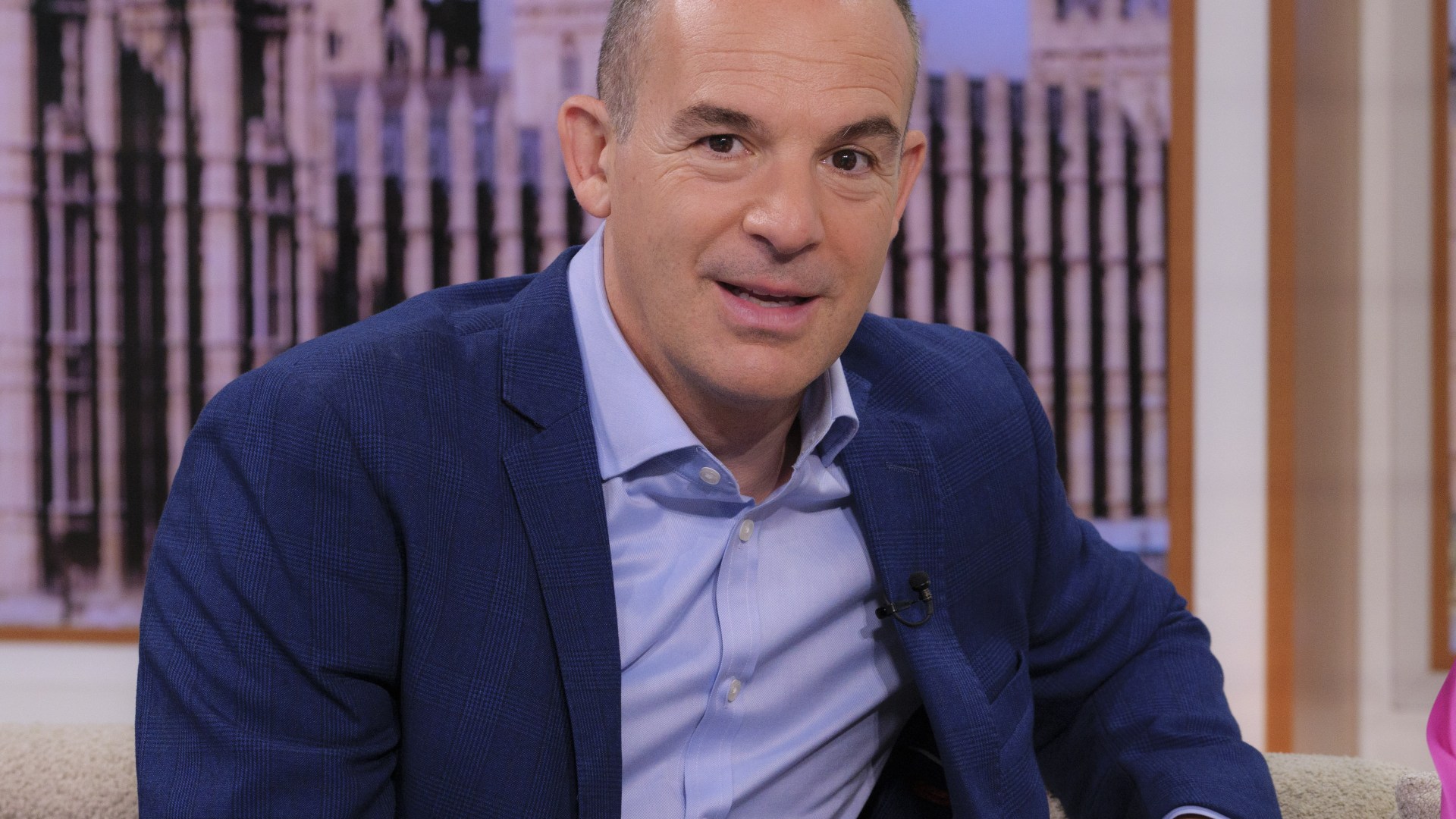Money
A lesson in why recording rationale is key to staying on the right side of the regulator

 The Financial Conduct Authority has made it clear its approach to enforcement is changing.
The Financial Conduct Authority has made it clear its approach to enforcement is changing.
It says it’s a change to increase public confidence in financial services and will require cooperation and commitment across the industry “to stop market abuse, keep our markets clean and build trust. This is how we will attract talent to our sector, bring investment to our shores and grow our economy.”
Quite the challenge but one that is necessary.
After almost 40 years of experience in the industry, I fundamentally believe there is now a strong professionalism underpinning the provision of financial advice and wealth management.
However, there are some reoccurring themes I see which undermine this positivity, including the fact there are still a number of people who struggle to really grasp why the FCA felt a need to introduce Consumer Duty.
For example, one of my colleagues was recently speaking to a senior manager within a wealth firm that had been struggling with its annual suitability review function for its clients. Their timescales were under pressure, with a lack of sufficiently proactive and competent advisers motivated enough to undertake appropriate reviews in a timely manner.
The firm needed to act promptly, not wait to see if the FCA would intervene to address the issue.
Its operational function began to look at artificial intelligence (AI) solutions and, through robust research and a strong testing approach, developed a review solution that reduced the time per client suitability review from three hours to 75 minutes, including adviser time to provide a summary of any recommendations.
However, this led the firm to fall down on its fair value assessment undertaken ahead of July.
The assessment acknowledged the improved efficiency it had achieved and the use of the improved technological solution but it had not taken into account the reduced management/adviser time required to undertake each client review and whether that should have an economic impact on the fee the firm charged to the client for its ongoing services.
It could be the case that the lack of actual adviser time on reviewing the portfolio is compensated by increased time in client meetings or conversations both adviser and client find more beneficial. Increased efficiency doesn’t necessarily mean the cost for the service provided should be reduced.
But the critical aspect here is that there has to be consideration. There needs to be evidence of a rationale as to why the service is value for money, fair and that the client genuinely understands what they are paying for.
Sadly, based on what we see at times, the communication is often lacking or convoluted, and the client finds themselves struggling to really understand what they are getting in terms of service.
Simon Collins is managing director, regulatory, at Konexo, a division of Eversheds Sutherland
Money
Weekend Essay: Maintaining old clients while bringing in the new


It all started with the website. The usual content had been wiped, leaving a black background, a new logo and an email sign-up link.
People speculated on social media about what this meant, then the envelopes containing plain black postcards arrived by post. The tiny, embossed words on these cards were barely noticeable. People took to social media to show off their envelopes or flogged them on eBay.
When a framed poster appeared in the window of a Sussex pub, mainstream media picked it up and it was clear something was going on.
I had no idea what guerilla marketing was until I got sucked into the unusual marketing’ campaign for The Cure’s first studio album in 16 years. This caught me by surprise, which is precisely the point. Guerilla marketing is supposed to involve unconventional marketing methods that rely on word of mouth or going viral on social media.
So, instead of official announcements through mainstream media via press releases, fans have been the first to hear about developments through a series of clues, hints and teasers. It’s been fun.
Like financial advice, music is a business where you ideally want your existing audience or clients to grow with you while picking up a decent number of new ones. My eldest son, Liam, is studying the business side of music as part of his Level 3 diploma in music and performance, so we’re having more discussions about this sort of thing.
When Liam told me he was learning about the pros and cons of signing to an indie or major record label, it reminded me of the debate about whether to join a small or big advice firm, or an independent or restricted proposition. If I was an adviser or a musician, I know exactly which way I’d go and why.
But trying to maintain a loyal customer base that appreciates what you do while futureproofing your business by appealing to a new younger audience is more difficult when you’re well established.
Like financial advice, music is a business where you ideally want your existing audience or clients to grow with you
I would want to stay true to myself and my brand, doing what I’d always done to some degree because I wouldn’t want to alienate existing customers. You build a loyal customer base by putting yourself out there in terms of values, services and marketing messages that are distinct from your competitors. Those things obviously ‘click’ with long-term supporters.
I wouldn’t want to chase new markets if it meant becoming something I wasn’t. But at the same time, I wouldn’t want the confines of doing what I’d always done and how I’d always done it because ‘if it ain’t broke, don’t fix it’. I’d want to try new things, move with the times and secure the future of my business with a healthy pipeline of new customers. But I have no idea how I’d try to achieve the required balance.
The Cure have done this with varying degrees of success in the last 46 years. It has ridden out periods of being eclipsed by the latest trends such as Britpop. It has been slated for changes in musical direction rather than delivering more of what went before. If it didn’t sound like the classic ‘Pornography’ or ‘Disintegration’ albums, some people didn’t want to know.
But this hasn’t prevented the band from maintaining a loyal fan base while attracting a steady stream of younger fans over the world. Even without any new music releases, strong live performances and social-media interest has kept it all going.
At Money Marketing I’ve been working on features that tell me the challenge for financial services is to cater for older and existing clients while engaging with a younger new audience in a way that appeals to them.
Research from FTRC around how advice firms are delivering information to clients and from pension administrator Trafalgar House show there is a balance to be had between digital and face-to-face communications. Firms need to communicate with clients in the way they want. But if preferences vary within a client base, how easy is it to be all things to everyone?
I’m convinced this would be simpler to navigate if we had a wider mix of age groups giving advice. I thought the recruitment of younger advisers was improving, but after speaking to recent graduates who want to become advisers, I’m not so sure.
Firms are reluctant to take on young people as trainees because it’s harder for someone with minimal life experience to build meaningful relationships with clients
It took one graduate from the prestigious St Andrews University in Scotland nearly four months and around 200 applications to get a job in the advice sector as an administrator. Many graduates really want to be trainee advisers, but the roles just aren’t there, so they have no choice but to go down the admin and paraplanning route.
One young adviser who is doing this told me it doesn’t teach people the skills needed to be an adviser and that moving from a senior paraplanner to a junior adviser is tricky as it involves a pay cut. “Employers don’t tend to see the progression in the same way as I do,” he said.
A different source has told me firms are reluctant to take on young people as trainee advisers because it’s harder for someone with minimal life experience to build meaningful relationships with clients.
I sort of get that – I’m married with kids and could easily relate to someone going through a divorce. Not because I’m experiencing it but because I understand what marriage means and conversely what no longer being married would mean.
In my early 20s, I could sympathise to the extent that I’d experienced a relationship break-up, but I wouldn’t have understood divorce as I would now.
But I don’t think it lets the advice profession off the hook in not having enough employed roles for people who want to advise. If you’re old enough to know what you want to do with your life, you’re old enough to be taught how to do it properly.
Making self-employment or associated roles the default strikes me as not the right way to do it. Let’s try something new.
Money
Major supermarket trials self-checkout change so shoppers can scan a big shop themselves

A SUPERMARKET giant is trialling a big change to its self-service checkouts.
The move would mean that shoppers don’t need a member of staff to help them scan a weekly food shop.
Sainsbury’s is currently testing a giant hybrid till with a scanner on a moving conveyor belt.
This would give shoppers more space to scan and pack bigger trolleys.
Sainsbury’s is currently trialling them in select stores before it decides whether to roll them out more widely.
To use the tills shoppers would load their items onto the conveyor belt, scan each one and then pack them into their own bags.
Read more on supermarkets
The tills are a similar size to manned checkouts that are currently in all big supermarkets.
But introducing these tills could divide shoppers.
Currently, self-service checkouts are very small and are typically used only when buying a basket of goods.
Customers who are doing their weekly shop usually use bigger tills which are operated by a member of staff.
These are often popular with older people or families who need help scanning and packing their shopping.
If the number of manned tills falls then this could mean longer waits for shoppers who do not want to scan their own items.
But those who are used to scanning and packing their own food may save time when doing their shopping.
The checkouts are currently being trialled in the Witney and Cobham stores in west Oxfordshire.
Sainsbury’s says that no decisions have been made on a further roll-out.
It says that it will continue to offer a range of checkout types for customers including self-checkout, Smart Shop and serviced tills.
How to save money on your food shop

Consumer reporter Sam Walker reveals how you can save hundreds of pounds a year:
Odd boxes – plenty of retailers offer slightly misshapen fruit and veg or surplus food at a discounted price.
Lidl sells five kilos of fruit and veg for just £1.50 through its Waste Not scheme while Aldi shoppers can get Too Good to Go bags which contain £10 worth of all kinds of products for £3.30.
Sainsbury’s also sells £2 “Taste Me, Don’t Waste Me” fruit and veg boxes to help shoppers reduced food waste and save cash.
Food waste apps – food waste apps work by helping shops, cafes, restaurants and other businesses shift stock that is due to go out of date and passing it on to members of the public.
Some of the most notable ones include Too Good to Go and Olio.
Too Good to Go’s app is free to sign up to and is used by millions of people across the UK, letting users buy food at a discount.
Olio works similarly, except users can collect both food and other household items for free from neighbours and businesses.
Yellow sticker bargains – yellow sticker bargains, sometimes orange and red in certain supermarkets, are a great way of getting food on the cheap.
But what time to head out to get the best deals varies depending on the retailer. You can see the best times for each supermarket here.
Super cheap bargains – sign up to bargain hunter Facebook groups like Extreme Couponing and Bargains UK where shoppers regularly post hauls they’ve found on the cheap, including food finds.
“Downshift” – you will almost always save money going for a supermarket’s own-brand economy lines rather than premium brands.
The move to lower-tier ranges, also known as “downshifting” and hailed by consumer expert Martin Lewis, could save you hundreds of pounds a year on your food shop.
A Sainsbury’s spokesperson said, “We are always exploring new ways to offer our customers the best possible choice and convenience.
“Our trial in Cobham and Witney is the latest example of that and we are listening to colleague and customer feedback.”
Other cashless changes
Self-service checkouts have become loathed by some shoppers as they are often used as a way to reduce the number of staff in store.
Earlier this year Sainsbury’s introduced new barrier systems which require self checkout shoppers to scan their receipts before they leave the store.
Asda also angered shoppers earlier this year when it introduced self-checkout only hours in some of its stores.
Meanwhile, Amazon and Tesco both offer “just walk out” shopping as another way to reduce the number of staff needed in store.
Sainsbury’s supermarket giant is also trialling digital touch-screen stations which will help customers to find products in the store.
The screens could mean that customers will not need to ask a member of staff for help.
They will also provide information such as recipes.
But Sainsburys’ chief executive Simon Roberts told The Grocer in April that Sainsbury’s would keep “at least one” staffed checkout within all stores.
He also added that many customers enjoy using self-checkouts.
“If you visit one of our supermarkets, what you’ll see is definitely more self checkouts than a number of years ago, because actually a lot of customers like the speedy checkout,” he said.
“Over the last year, where we’ve put more self checkouts in, we’re always making sure that the traditional kind of belted checkout is there.”
The changes come after the announcement of cost-cutting measures at the supermarket.
In February Roberts set a cost saving target of £1 billion for the next three years.
He said he expects to boost the supermarket’s profit by prioritising food, Nectar card and convenience through its “Next Level” Sainsbury’s strategy.
Under the plans the money it saves will be reinvested in the business to give customers “great value, quality and service”.
When it is complete the group will have cut £2.5 billion of costs over the last decade.
Do you have a money problem that needs sorting? Get in touch by emailing money-sm@news.co.uk.
Plus, you can join our Sun Money Chats and Tips Facebook group to share your tips and stories
Money
Money Marketing Weekly Wrap-Up – 14 Oct to 18 Oct


Money Marketing’s Weekly Must-Reads: Top 10 Stories
Will Chancellor Reeves’ Budget deliver? And what’s in store for self-employed advisers? Find out in this week’s top stories:
State pension set for 4.1% rise next April
The state pension is expected to increase by 4.1% in April 2025 due to the triple lock formula. This means those on the full new state pension will receive £230.30 a week, while those on the basic state pension will get £176.45. The rise is based on average earnings growth (4.1%) exceeding both inflation (1.7%) and the 2.5% minimum. However, some pensioners may see a smaller increase due to a rule affecting pre-2016 pensions.
SJP hires Adam Higgs to help drive growth in protection
St James’s Place (SJP) has appointed Adam Higgs as its new head of protection. Higgs, formerly of Protection Guru, will focus on enhancing SJP’s protection offerings and driving growth. He will work with SJP advisers to ensure clients receive adequate protection, aiming to solidify SJP’s position in the protection market. Higgs brings extensive experience from his previous roles at Protection Guru, the FTRC, Foster Denovo, and Scottish Life.
FCA: ‘We’re not against small firms’
The FCA has denied claims it is forcing small advice firms out of the market through increased regulation. Nick Hulme, FCA head of advisers, wealth and pensions, emphasised the value of small firms and their crucial role in closing the advice gap. He acknowledged the challenges faced by smaller firms in meeting regulatory requirements, but highlighted the Consumer Duty as a way to ease this burden. Hulme stressed the FCA’s commitment to supporting all advice firms, regardless of size, and aims to foster collaboration to benefit consumers.
Removing IHT tax break on AIM stocks ‘might make it unfit for purpose’
There are concerns that Labour may scrap inheritance tax relief on AIM stocks in the upcoming budget. This could significantly impact the AIM market, which has already seen a decline in IPOs. Removing this tax break might deter investment in smaller companies, hindering economic growth. Critics argue that AIM is already struggling, with low liquidity and trading volumes, and suggest the government’s PISCES framework as a better alternative for private companies seeking funding.
Financial Life Planning hires Rebecca Tuck as ops director to drive growth
Financial Life Planning, founded by Kate Shaw, has appointed Rebecca Tuck as operations director to spearhead the firm’s expansion. Tuck aims to streamline internal processes and enhance the client experience before expanding the team. The firm, which champions a client-centric approach, is undergoing a rebrand to attract those who feel underserved by traditional financial planning, particularly Gen X women. They are actively seeking new employees who align with their values and client-focused ethos.
Attivo appoints former Schroders director as CEO
Attivo, a chartered independent lifestyle financial planning business, has appointed Jo French as its new CEO. French brings over 25 years of experience in financial services, having held senior roles at Schroders, Benchmark Capital, Pointon York and Embark Group. She will focus on operational improvements, client experience, and Attivo’s investment platform strategy. Stephen Harper will continue as chair, leading the overall business strategy.
Tim Sargisson: Small advice firms heading for extinction
The number of small advice firms is rapidly declining, according to Tim Sargisson, former chief executive of James Hay and Sandringham Financial Partners. He cites increased regulatory burdens, competition, and the rise of digital services as key factors. While niche markets and outsourcing offer potential solutions, they also carry risks. Sargisson predicts that small firms may ultimately disappear, mirroring the decline of traditional high street shops.
Investors’ ‘love affair’ with ESG continues to cool
Investor interest in ESG (environmental, social and governance) factors has fallen for the third consecutive year, according to the Association of Investment Companies. While almost half of investors still consider ESG, this is down from 66% in 2021. Concerns about greenwashing and performance remain, though governance is growing in importance. Older investors are less likely to consider ESG factors compared to their younger counterparts.
Greg Moss: Death of the small firm? Fat chance
Greg Moss, founder of Eleven.2 Financial Planning, challenges the idea that small advice firms are heading for extinction. He argues that small firms are still dominant in the advice market and offer advantages over larger firms, such as greater innovation and better client outcomes. While acknowledging the importance of technology, Moss emphasizes the value of personal interaction and client care, which he believes small firms are better equipped to provide. He also highlights the limitations of large firms, including bureaucratic processes and a focus on commoditised services. Moss concludes that small firms will continue to thrive as long as they prioritise client needs and relationships.
Industry gives final thoughts on FCA’s value for money framework proposals
The FCA’s proposed value for money framework for pension schemes, which closes for consultation today, has garnered mixed reactions from the industry. While broadly supportive of the aim to improve value for savers, concerns remain about potential market disruption, the complexity of the metrics, and the need for consistent application across different pension types. Some argue for a more nuanced approach that considers the diverse needs of the market and encourages innovation.
Money
Huge update for 4.1million customers of major supermarket bank after takeover – check if you’re affected

A MAJOR update has been issued to millions of customers affected by a supermarket bank takeover.
In February, Barclays agreed to purchase Tesco’s retail banking division, which included the acquisition of nearly 3,000 employees.
Customers have now been informed that their services will officially be transferred and managed by Barclays from November 1.
This follows the regulator’s approval of the takeover yesterday.
Tesco Bank currently offers a range of personal banking and insurance products, including personal loans and credit cards, to over four million customers.
The supermarket bank will retain some of its insurance services, ATMs, travel money, and gift cards.
However, all other services, including credit cards and personal loans, will be transferred to Barclays next month.
Although Barclays will manage these services, they will continue to be marketed under the Tesco Bank name for now.
Tesco Bank stopped offering mortgages through its bank in 2019 after seven years.
It’s 23,000 mortgage loans were sold to Lloyds Banking Group, which Halifax is part of, for around £3.8billion.
Tesco Bank also offered current accounts, which were closed to all customers in November 2021.
Those affected by the switch to Barclays are not required to take any action before the switch, and there will be no changes to their services after it occurs.
WHAT IT MEANS FOR YOUR MONEY
In the short term, it is likely customers won’t notice much change.
Your credit card and personal loans will still be marketed under the Tesco Bank name, and you won’t need to request a new card or change how you’re repaying any debt.
Barclays has said that it will continue to operate the business under the Tesco Bank brand for at least 10 years as part of a “long-term, exclusive strategic partnership”.
While no staff will transfer to Barclays under the scheme, it is anticipated that “approximately 2,523 employees across the UK and India” will eventually move over to the banking giant.
Tesco Bank will continue to operate its insurance products, ATMs, travel money and gift cards under its own roof.
In the meantime, it’s always worth checking to see if you can get a better credit card or land deal elsewhere.
FIND THE BEST CREDIT CARD AND LOANS
To assess all the available cards and personal loans, visit price comparison websites like MoneySavingExpert’s Cheap Credit Club or Compare the Market.
These sites allow you to tailor the perks you’re looking for, whether it’s cashback, air miles, or other rewards.
You should always use an eligibility calculator before applying, that’s because every credit card application leaves a mark on your credit file and can affect your credit score.
Once you run your details through an eligibility calculator and you’ve been shown that you’re likely to be accepted, make a formal application.
To do this, you will need to provide your name, address and email address as well as details of your income so a provider can assess your eligibility.
You will also need to provide details of how much money you want to transfer to the new card, but you can often do this after you have been accepted.
If your application is approved, you will need to transfer the balances within a set period, usually around 60 or 90 days.
Your old balance will then be cleared and you can start making interest-free repayments on your new card.
CREDIT CARD NEED-TO-KNOWS
NOT using a credit card effectively can wreak havoc on your finances and your credit score.
If you don’t keep up with repayments or default on your debt, you are likely to get a black mark on your credit record, which could affect your ability to get a credit card, loan or mortgage in the future.
It’s important not to let yourself get sucked into overspending.
You should always clear the full balance as soon as possible.
If you have a poor credit score, don’t bank on being approved for a card or getting the 0% deal you’d hoped for.
Card providers only have to give the advertised rate to 51% of applicants, so you could end up paying more interest than you bargained for.
After your 0% period is up, lenders can charge upwards of 40% interest, so if you have not repaid the debt fully by then, try to move the debt onto another 0% deal.
If you’ve got a poor credit record, you’re less likely to get the best rates.
And if you are looking for a new credit card, don’t apply for lots at once.
OTHER BANKING NEWS
Tesco Bank isn’t the only supermarket bank to have been sold in recent months.
NatWest agreed to purchase Sainsbury’s Bank in June 2024.
This follows Sainsbury’s announcement in January that it would wind down its banking division to focus on its retail business.
NatWest said it expects the takeover to be completed by March 2025, and all customers will be moved over by the end of next year.
However, Sainsbury’s will retain some of its banking activities, including insurance and travel money.
Argos Financial Services is also not included in the deal.
Last summer Sainsbury’s Bank offloaded its £479million mortgage book to Co-op Bank.
Elsewhere, Britain’s largest building society announced that it had agreed to a £2.9billion deal to take over Virgin Money in March.
Under the plans, approved by regulators in October, the two companies will run as separate entities.
The Virgin Money brand will be retained for six years before being rebranded to Nationwide.
The move will create a combined group with around 24.5million customers, more than 25,000 staff and nearly 700 branches.
This will make the organisation the country’s second largest mortgage and savings group.
Money
Martin Lewis reveals two reasons why ‘vast majority’ on state pension will see payments rise by LESS than £473 next year

MARTIN Lewis has revealed two reasons why the “vast majority” on state pension won’t get the full £473 boost next year.
The state pension increases every year in a bid to keep up with rising costs, but not everyone sees their payments go up by the same amount.
Under the triple lock, payments rise in line with whatever is highest out of: wages for May to July, 2.5% or September’s inflation figures.
This week the Office for National Statistics published revised figures of 4.1% for July’s wages.
It also confirmed that September’s inflation rate fell to 1.7% – making wages the determining factor for the lock.
The full new state pension will increase from £221.20 a week – £11,502 per year – to £230.30 a week or £11,975 per year.
READ MORE IN MARTIN LEWIS
However, speaking on this week’s The Martin Lewis Podcast, the consumer expert revealed there are reasons millions will not get the full headline figure.
Martin said: “The figure you will see in most places quoted that state pensioners will see a rise of £475 a year, in practical terms that is an unrealistic figure for the vast majority of pensioners who will not see that rise.”
He then went on to explain that this is due to the figure relating to the full new state pension.
This pension came in in April 2016 and is a “totally new” type of pension for anyone who hits state pension age in or after that time.
Martin continued: “But if you look at the numbers, only one in four state pensioners get the new state pension, the rest are on the old state pension because they hit state pension age beforehand.
“The old state pension is less in its basic form than the new state pension, therefore a 4.1% rise in the old state pension is not as much so the vast majority of state pensioners won’t see £475 a year, they will see £363 a year as the full old state pension rise – it’s much smaller than is often quoted.”
The MoneySavingExpert then went on to explain that even those on the new style state pension can only get the full amount if they have the correct amount of qualifying years.
Under current rules, you need 35 “qualifying years” to get the full new state pension.
He said: “If you don’t have your ‘full’ qualifying years which millions don’t, especially many of the poorest – many of those who are eligible for pension credit – then you won’t get the full rise because it is a 4.1% rise on what you got and the £363 a year for the old state pension is if you’re on the ‘full’ old state pension.”
It’s important to bear this all in mind, Martin explained, pensioners need to have “realistic expectations” of what they can get.
He continued: “But also in the debate over winter fuel payment is what’s often quoted is the triple lock increase of £475.
“But only one in four state pensioners get the new state pension which is the higher amount and many of those won’t be on the ‘full’ state pension – so we need to be slightly careful, many people have come to me and said yeah but they get this triple lock of this much extra a year – but the vast majority of pensioners won’t get the full £475 which is what you will see quoted in many media outlets and many government communications.
“The vast majority of pensioners will see an uplift that is far less than that because the vast majority of state pensioners are on the old state pension and many don’t have the full state pension.”
Topping up your state pension
If you think you’re missing National Insurance years, the first thing to do is check your State Pension forecast.
You can check this as well as the State Pension age through the government’s new ‘Check your State Pension’ tool online at www.gov.uk/check-state-pension.
The tool is also available through the HMRC app, which you can download free on the Apple App Store and Google Play Store.
You might be able to buy back years.
But earning back the years isn’t free, so your voluntary contributions come at a price.
If you fill gaps between 2006/07 and 2015/16, you’ll pay the 2022/23 rates for contributions.
It is worth £15.85 a week, which means it costs £824.20 to buy one year of contributions.
As the state pension was £185.15 per week in 2022/23, this boost would add £5.29 per week or around £275 per year.
Although you’d have to pay £8,242 (10 lots of £824.20), the annual state pension boost would be around £2,750.
Someone who was retired for 20 years would get back around £55,000 in total (before tax).
Anyone under 73 can make voluntary pension contributions, as it’s assumed everyone under this age will claim the new state pension.
If you’re below the state pension age, you can check your state pension forecast by visiting www.gov.uk/check-state-pension to determine if you’ll benefit from paying voluntary contributions.
You can also contact the Future Pension Centre by calling 0800 731 0175.
If you’ve reached state pension age, contact the Pension Service to find out if you’ll benefit from voluntary contributions.
You can contact this service in several different ways by visiting www.gov.uk/contact-pension-service.
You can usually pay voluntary contributions for the past six years.
The deadline is April 5 each year.
For example, you have until April 5, 2030, to compensate for gaps in the tax year 2023 to 2024.
The deadline has been extended for making voluntary contributions for the tax years 2016 to 2017 or 2017 to 2018. You now have until April 5, 2025, to pay.
Find out how to pay for your contributions by visiting www.gov.uk/pay-voluntary-class-3-national-insurance.
You could also be eligible for the top-up benefit Pension Credit if you’re 66 or older and your income is below £218.15 a week if you’re single or £332.95 as a couple or if you meet other criteria.
Pension Credit explained
Pension Credit is a benefit which gives you extra money to help with your living costs if you’re on a low income in retirement.
It can also help with housing costs such as ground rent or service charges.
You may be able to get extra help of you’re a carer, have a disability, or are responsible for a child.
It also opens up access to lots of other benefits such as the warm home discount scheme, support for mortgage interest, council tax discounts, free TV licences once you’re over 75, and help with NHS costs.
To qualify, you need to be over state pension age and live in England, Scotland or Wales.
If you have a partner, you need to include them on your claim.
Pension Credit tops up:
- your weekly income to £218.15 if you’re single
- your joint weekly income to £332.95 if you have a partner
However, even if your income is higher, you might still qualify if you have a disability or caring responsibilities.
There is also another element to Pension Credit called savings credit. To get this, you need to have saved some money towards your retirement.
You can get an extra £17.01 a week for a single person or £19.04 a week for a married couple.
If you have more than £10,000 in savings, the government uses a calculation to work out how much it adds to your income.
Every £500 over £10,000 counts as £1 income a week. For example, if you have £11,000 in savings, this counts as £2 income a week.
Do you have a money problem that needs sorting? Get in touch by emailing money-sm@news.co.uk.
Plus, you can join our Sun Money Chats and Tips Facebook group to share your tips and stories
Money
NWF and bank duo join forces to deliver £1bn for social housing retrofit

The funding has been enabled by financial guarantees of up to £750m provided by the National Wealth Fund
The post NWF and bank duo join forces to deliver £1bn for social housing retrofit appeared first on Property Week.
-

 Science & Environment4 weeks ago
Science & Environment4 weeks agoHyperelastic gel is one of the stretchiest materials known to science
-

 Technology3 weeks ago
Technology3 weeks agoIs sharing your smartphone PIN part of a healthy relationship?
-

 Science & Environment4 weeks ago
Science & Environment4 weeks agoHow to unsnarl a tangle of threads, according to physics
-

 Science & Environment4 weeks ago
Science & Environment4 weeks ago‘Running of the bulls’ festival crowds move like charged particles
-

 Technology1 month ago
Technology1 month agoWould-be reality TV contestants ‘not looking real’
-

 Science & Environment4 weeks ago
Science & Environment4 weeks agoMaxwell’s demon charges quantum batteries inside of a quantum computer
-

 Science & Environment4 weeks ago
Science & Environment4 weeks agoLiquid crystals could improve quantum communication devices
-

 Womens Workouts4 weeks ago
Womens Workouts4 weeks ago3 Day Full Body Women’s Dumbbell Only Workout
-

 Science & Environment3 weeks ago
Science & Environment3 weeks agoX-rays reveal half-billion-year-old insect ancestor
-

 Science & Environment4 weeks ago
Science & Environment4 weeks agoQuantum ‘supersolid’ matter stirred using magnets
-

 Science & Environment4 weeks ago
Science & Environment4 weeks agoSunlight-trapping device can generate temperatures over 1000°C
-

 Science & Environment4 weeks ago
Science & Environment4 weeks agoWhy this is a golden age for life to thrive across the universe
-

 Science & Environment1 month ago
Science & Environment1 month agoNerve fibres in the brain could generate quantum entanglement
-

 Science & Environment4 weeks ago
Science & Environment4 weeks agoLaser helps turn an electron into a coil of mass and charge
-

 Science & Environment4 weeks ago
Science & Environment4 weeks agoQuantum forces used to automatically assemble tiny device
-

 Science & Environment1 month ago
Science & Environment1 month agoA slight curve helps rocks make the biggest splash
-

 Science & Environment4 weeks ago
Science & Environment4 weeks agoITER: Is the world’s biggest fusion experiment dead after new delay to 2035?
-

 Science & Environment4 weeks ago
Science & Environment4 weeks agoHow to wrap your mind around the real multiverse
-
News1 month ago
the pick of new debut fiction
-

 News4 weeks ago
News4 weeks agoOur millionaire neighbour blocks us from using public footpath & screams at us in street.. it’s like living in a WARZONE – WordupNews
-

 Science & Environment4 weeks ago
Science & Environment4 weeks agoTime travel sci-fi novel is a rip-roaringly good thought experiment
-

 News4 weeks ago
News4 weeks ago▶️ Media Bias: How They Spin Attack on Hezbollah and Ignore the Reality
-

 Science & Environment4 weeks ago
Science & Environment4 weeks agoNuclear fusion experiment overcomes two key operating hurdles
-

 Technology3 weeks ago
Technology3 weeks agoWhy Machines Learn: A clever primer makes sense of what makes AI possible
-

 News1 month ago
News1 month ago▶️ Hamas in the West Bank: Rising Support and Deadly Attacks You Might Not Know About
-

 Science & Environment4 weeks ago
Science & Environment4 weeks agoPhysicists are grappling with their own reproducibility crisis
-

 Science & Environment4 weeks ago
Science & Environment4 weeks agoA new kind of experiment at the Large Hadron Collider could unravel quantum reality
-

 Technology3 weeks ago
Technology3 weeks agoMicrophone made of atom-thick graphene could be used in smartphones
-

 News4 weeks ago
News4 weeks agoYou’re a Hypocrite, And So Am I
-

 Science & Environment4 weeks ago
Science & Environment4 weeks agoPhysicists have worked out how to melt any material
-
Business3 weeks ago
Eurosceptic Andrej Babiš eyes return to power in Czech Republic
-

 Science & Environment1 month ago
Science & Environment1 month agoCaroline Ellison aims to duck prison sentence for role in FTX collapse
-

 Sport4 weeks ago
Sport4 weeks agoJoshua vs Dubois: Chris Eubank Jr says ‘AJ’ could beat Tyson Fury and any other heavyweight in the world
-

 Technology3 weeks ago
Technology3 weeks agoUkraine is using AI to manage the removal of Russian landmines
-

 Business2 weeks ago
Business2 weeks agoWhen to tip and when not to tip
-

 Sport2 weeks ago
Sport2 weeks agoCoco Gauff stages superb comeback to reach China Open final
-

 Sport2 weeks ago
Sport2 weeks agoWales fall to second loss of WXV against Italy
-

 News1 month ago
News1 month agoNew investigation ordered into ‘doorstep murder’ of Alistair Wilson
-
News4 weeks ago
The Project Censored Newsletter – May 2024
-

 Sport3 weeks ago
Sport3 weeks agoWatch UFC star deliver ‘one of the most brutal knockouts ever’ that left opponent laid spark out on the canvas
-

 Health & fitness1 month ago
Health & fitness1 month agoThe secret to a six pack – and how to keep your washboard abs in 2022
-

 Science & Environment4 weeks ago
Science & Environment4 weeks agoRethinking space and time could let us do away with dark matter
-

 Science & Environment4 weeks ago
Science & Environment4 weeks agoA tale of two mysteries: ghostly neutrinos and the proton decay puzzle
-

 Technology3 weeks ago
Technology3 weeks agoQuantum computers may work better when they ignore causality
-

 MMA3 weeks ago
MMA3 weeks agoConor McGregor challenges ‘woeful’ Belal Muhammad, tells Ilia Topuria it’s ‘on sight’
-

 Technology3 weeks ago
Technology3 weeks agoUniversity examiners fail to spot ChatGPT answers in real-world test
-

 Technology2 weeks ago
Technology2 weeks agoThis AI video generator can melt, crush, blow up, or turn anything into cake
-
Business2 weeks ago
DoJ accuses Donald Trump of ‘private criminal effort’ to overturn 2020 election
-

 News2 weeks ago
News2 weeks agoMassive blasts in Beirut after renewed Israeli air strikes
-

 Sport3 weeks ago
Sport3 weeks agoWorld’s sexiest referee Claudia Romani shows off incredible figure in animal print bikini on South Beach
-

 MMA2 weeks ago
MMA2 weeks agoDana White’s Contender Series 74 recap, analysis, winner grades
-

 Technology2 weeks ago
Technology2 weeks agoA very underrated horror movie sequel is streaming on Max
-

 News2 weeks ago
News2 weeks ago▶ Hamas Spent $1B on Tunnels Instead of Investing in a Future for Gaza’s People
-

 Technology3 weeks ago
Technology3 weeks agoRobo-tuna reveals how foldable fins help the speedy fish manoeuvre
-
Business3 weeks ago
Should London’s tax exiles head for Spain, Italy . . . or Wales?
-

 Football3 weeks ago
Football3 weeks agoFootball Focus: Martin Keown on Liverpool’s Alisson Becker
-

 Science & Environment4 weeks ago
Science & Environment4 weeks agoFuture of fusion: How the UK’s JET reactor paved the way for ITER
-

 News4 weeks ago
News4 weeks agoIsrael strikes Lebanese targets as Hizbollah chief warns of ‘red lines’ crossed
-
Politics4 weeks ago
UK consumer confidence falls sharply amid fears of ‘painful’ budget | Economics
-
Politics3 weeks ago
Robert Jenrick vows to cut aid to countries that do not take back refused asylum seekers | Robert Jenrick
-

 Technology3 weeks ago
Technology3 weeks ago‘From a toaster to a server’: UK startup promises 5x ‘speed up without changing a line of code’ as it plans to take on Nvidia, AMD in the generative AI battlefield
-

 MMA2 weeks ago
MMA2 weeks agoJulianna Peña trashes Raquel Pennington’s behavior as champ
-

 News2 weeks ago
News2 weeks agoHeartbreaking end to search as body of influencer, 27, found after yacht party shipwreck on ‘Devil’s Throat’ coastline
-

 Technology2 weeks ago
Technology2 weeks agoTexas is suing TikTok for allegedly violating its new child privacy law
-

 News2 weeks ago
News2 weeks agoHull KR 10-8 Warrington Wolves – Robins reach first Super League Grand Final
-

 News2 weeks ago
News2 weeks agoBalancing India and China Is the Challenge for Sri Lanka’s Dissanayake
-

 News2 weeks ago
News2 weeks agoNavigating the News Void: Opportunities for Revitalization
-
Business2 weeks ago
Bank of England warns of ‘future stress’ from hedge fund bets against US Treasuries
-

 Sport2 weeks ago
Sport2 weeks agoLauren Keen-Hawkins: Injured amateur jockey continues progress from serious head injury
-

 TV2 weeks ago
TV2 weeks agoPhillip Schofield accidentally sets his camp on FIRE after using emergency radio to Channel 5 crew
-

 Technology2 weeks ago
Technology2 weeks agoAmazon’s Ring just doubled the price of its alarm monitoring service for grandfathered customers
-

 TV2 weeks ago
TV2 weeks agoসারাদেশে দিনব্যাপী বৃষ্টির পূর্বাভাস; সমুদ্রবন্দরে ৩ নম্বর সংকেত | Weather Today | Jamuna TV
-

 MMA2 weeks ago
MMA2 weeks agoPereira vs. Rountree prediction: Champ chases legend status
-

 Technology2 weeks ago
Technology2 weeks agoApple iPhone 16 Plus vs Samsung Galaxy S24+
-

 News2 weeks ago
News2 weeks agoHeavy strikes shake Beirut as Israel expands Lebanon campaign
-

 Technology1 month ago
Technology1 month agoThe ‘superfood’ taking over fields in northern India
-

 Science & Environment4 weeks ago
Science & Environment4 weeks agoUK spurns European invitation to join ITER nuclear fusion project
-

 News4 weeks ago
News4 weeks agoWhy Is Everyone Excited About These Smart Insoles?
-

 News4 weeks ago
News4 weeks agoFour dead & 18 injured in horror mass shooting with victims ‘caught in crossfire’ as cops hunt multiple gunmen
-

 Technology3 weeks ago
Technology3 weeks agoGet ready for Meta Connect
-

 Health & fitness3 weeks ago
Health & fitness3 weeks agoThe 7 lifestyle habits you can stop now for a slimmer face by next week
-

 News1 month ago
News1 month agoHow FedEx CEO Raj Subramaniam Is Adapting to a Post-Pandemic Economy
-

 Science & Environment4 weeks ago
Science & Environment4 weeks agoBeing in two places at once could make a quantum battery charge faster
-

 CryptoCurrency4 weeks ago
CryptoCurrency4 weeks agoCardano founder to meet Argentina president Javier Milei
-

 Science & Environment4 weeks ago
Science & Environment4 weeks agoWhy we need to invoke philosophy to judge bizarre concepts in science
-

 Sport4 weeks ago
Sport4 weeks agoUFC Edmonton fight card revealed, including Brandon Moreno vs. Amir Albazi headliner
-
Politics4 weeks ago
‘Appalling’ rows over Sue Gray must stop, senior ministers say | Sue Gray
-

 TV4 weeks ago
TV4 weeks agoCNN TÜRK – 🔴 Canlı Yayın ᴴᴰ – Canlı TV izle
-

 Science & Environment4 weeks ago
Science & Environment4 weeks agoMeet the world's first female male model | 7.30
-

 Womens Workouts4 weeks ago
Womens Workouts4 weeks ago3 Day Full Body Toning Workout for Women
-

 Servers computers3 weeks ago
Servers computers3 weeks agoWhat are the benefits of Blade servers compared to rack servers?
-
Business2 weeks ago
Ukraine faces its darkest hour
-

 Business2 weeks ago
Business2 weeks agoChancellor Rachel Reeves says she needs to raise £20bn. How might she do it?
-

 Entertainment2 weeks ago
Entertainment2 weeks agoChristopher Ciccone, artist and Madonna’s younger brother, dies at 63
-

 Football2 weeks ago
Football2 weeks agoRangers & Celtic ready for first SWPL derby showdown
-
Business2 weeks ago
Top shale boss says US ‘unusually vulnerable’ to Middle East oil shock
-

 Technology2 weeks ago
Technology2 weeks agoMusk faces SEC questions over X takeover
-
Business2 weeks ago
Sterling slides after Bailey says BoE could be ‘a bit more aggressive’ on rates
-

 Technology2 weeks ago
Technology2 weeks agoSamsung Passkeys will work with Samsung’s smart home devices
-

 Entertainment2 weeks ago
Entertainment2 weeks ago“Golden owl” treasure hunt launched decades ago may finally have been solved




You must be logged in to post a comment Login